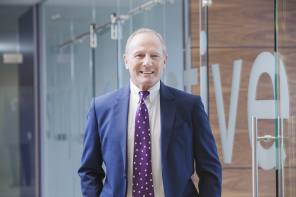

True Potential is due to launch its new platform, saying it believes using its own staff to carry out the work will help it avoid the woes suffered by others.
The company said it will have "full ownership and control" of the technology, which set it apart from other firms, which largely used external technology providers to perform the upgrade.
It believes the fact the work is being done in house will reduce the risk of it suffering the sort of issues that have plagued Aegon and Aviva since those platforms were upgraded.
Daniel Harrison, senior partner at True Potential said: "We have taken that a step further and are preparing to launch our new and enhanced platform soon, with full ownership and control of the technology. We continue to believe that this is the right approach."
Mike Barrett of consultancy the Lang Cat said: "Doing the work in house might help. It certainly helps them to avoid a clash of priorities with a technology provider that may have other clients to serve as well.
"But a big issue with replatforming is adviser engagement. All platforms think they have done enough to prepare their adviser clients for the replatforming, and then it turns out the advisers are not prepared. That is something True Potential need to think about."
True Potential announced in April that it was to revamp its platform. At the time the company said it was ending the relationship it had with platform technology provider SEI and would instead use its in-house team of developers.
The platform is used by about 3,000 advisers, with 481 restricted advisers being part of the firm's national advice arm, True Potential Wealth Management.
True Potential has invested heavily in technology in recent years, including in its ImpluseSave service and a robo-advice offering using chatbots reliant on artificial intelligence to provide either guidance in the form of passive information or automated advice based on information which the system has gathered.
It has been working on the new platform since 2016 and is planning to incorporate blockchain into the replatforming.
The details come as the company is preparing for a sale and has revealed it is currently considering a number of offers, that might value it at about £2bn.
It comes after True Potential reported profits of £24m for 2017 and a turnover of £99m while assets on its platform increased to £6.8bn.
Figures published by the Lang Cat last week also showed True Potential was the platform with the biggest yield on its assets under administration, largely due to its vertical integration.
True Potential is run by its founder, David Harrison, who previously ran Positive Solutions before selling it to Aegon for £130m in 2003.
The company is backed by US private equity firm FTV Capital, which invested a "significant" amount into the business in 2016 and now owns a minority stake.
If True Potential was valued at £2bn it would make it significantly more valuable than some of its rival platforms.
Nucleus and Transact, which are both listed on the London Stock Exchange, currently have market caps of £164m and £1.1bn respectively.
Quilter, the business formerly known as Old Mutual Wealth which floated earlier this year, currently has a market cap of £2.68bn.
david.thorpe@ft.com



